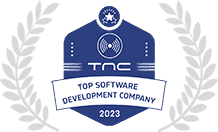Your app icon is the face of your app. It not only attracts users but also reflects the quality and professionalism of your application. Neglecting app icons can result in poor branding, lower downloads, and decreased credibility. A well-designed icon enhances your app’s appeal on the App Store or Google Play.
Key Benefits of Adding an App Icon
- Brand Identity: An icon differentiates your app from competitors.
- Professional Look: Apps without proper icons look unfinished.
- First Impression: A great icon increases click-through rates.
- Device Recognition: Easy to locate on home screens.
Also Read :- How to Disable Button in Flutter
How to Add App Icon in Flutter
Adding an app icon in Flutter is straightforward, thanks to tools like the flutter_launcher_icons package. This process ensures that your app icon is visible and properly scaled on both Android and iOS platforms.
Step-by-Step Guide to Add App Icons in Flutter
Step 1: Install the Flutter Launcher Icons Package
- Open the terminal and navigate to your Flutter project directory.
- Add the following dependency in your
pubspec.yamlfile: - Run the command:
Step 2: Prepare Your App Icon
- Design your app icon with dimensions of 512×512 pixels for optimal quality.
- Save the image in your project directory, typically under the
assets/iconfolder.
Step 3: Configure the flutter_icons Section
In the pubspec.yaml file, specify the icon path and platforms:
Step 4: Generate App Icons
Run the command to generate icons:
This will create all necessary icon sizes for both Android and iOS.
Also Read :- How to Animation in Flutter
Detailed Explanation of App Icon Files
When you generate app icons, Flutter creates multiple sizes to ensure compatibility across devices. Let’s break down the files for each platform:
| Platform | Directory | Purpose |
|---|---|---|
| Android | android/app/src/main/res/ |
Icons for various device densities |
| iOS | ios/Runner/Assets.xcassets |
Icons for iOS devices |
Each file corresponds to a specific screen density or resolution.
Customizing App Icons in Flutter
Modifying the Icon for Different Platforms
- Android:
- Locate the
resfolder under theandroiddirectory. - Replace the generated icons with custom ones, maintaining the same file names.
- Locate the
- iOS:
- Open the Xcode project and navigate to
Assets.xcassets. - Replace the existing icons with your custom designs.
- Open the Xcode project and navigate to
Also Read :- How to Build Flutter Web Applications
Troubleshooting Common Issues
Even with detailed steps, issues may arise. Here’s how to solve common problems:
Icons Not Appearing Properly
- Ensure the
image_pathis correctly specified. - Check that all required assets are included in the project directory.
Build Errors
- Run
flutter cleanand then rebuild your project:
Low-Quality Icons
- Use high-resolution images (512×512 or higher).
- Avoid compressing the icon too much.
Also Read :- How to Border Container in Flutter?
Best Practices for App Icon Design in Flutter
Creating an appealing app icon involves more than just adding an image. Follow these design tips:
- Use Simple Shapes: Icons with minimal detail are easier to recognize.
- Focus on Colors: Choose contrasting colors to enhance visibility.
- Test on Devices: Ensure the icon looks good on various screen sizes.
Advantages of Using flutter_launcher_icons
The flutter_launcher_icons package simplifies the icon generation process. Here’s why you should use it:
Key Features
- Automates icon scaling for multiple resolutions.
- Supports both Android and iOS platforms.
- Easy configuration in the
pubspec.yamlfile.
Alternatives to flutter_launcher_icons
- Manual Method: Resize and replace icons manually in respective directories.
- Third-Party Tools: Use tools like App Icon Generator for quick scaling.
Also Read :- How to Blur an Image in Flutter
FAQs
1. What is the recommended size for a Flutter app icon?
The recommended size is 512×512 pixels to ensure compatibility across devices.
2. Can I use different icons for Android and iOS?
Yes, you can specify separate icon paths for Android and iOS in the pubspec.yaml file.
3. How do I fix blurry icons?
Use high-resolution images and avoid scaling down excessively.
4. Is flutter_launcher_icons mandatory for app icons?
No, but it simplifies the process significantly.
5. Can I update the app icon after publishing?
Yes, you can update the icon and release a new version of your app.
6. How do I test the app icon?
Build and install the app on a physical device or emulator.
7. Are app icons included in Flutter’s hot reload?
No, changes to app icons require a full rebuild.
8. What happens if I don’t add an app icon?
Your app will use the default Flutter icon, which appears unprofessional.
9. Can I animate app icons?
No, app icons are static images and cannot include animations.
10. How do I ensure my icon meets App Store guidelines?
Follow design guidelines provided by Google Play and Apple App Store.
11. Are there tools to preview app icons?
Yes, tools like Appicon.co allow you to preview icons on different devices.
12. What file formats are supported for app icons?
Use PNG format for compatibility.
13. Can I use transparent backgrounds?
Yes, but ensure transparency aligns with your design.
14. What is the purpose of adaptive icons in Android?
Adaptive icons adjust to different device shapes and themes.
15. How do I make adaptive icons?
Add separate foreground and background layers in the res directory.
16. Do I need a Mac to add iOS app icons?
No, you can generate icons on any system but need Xcode for iOS testing.
17. How do I create multi-resolution icons manually?
Resize your icon to standard resolutions (e.g., 48×48, 72×72) using tools like Photoshop.
18. Why are some icons missing on Android?
Check the res directory for missing files and rebuild the app.
19. How often should I update my app icon?
Update only when necessary, such as during rebranding or seasonal themes.
20. Can I use a photo as an app icon?
Yes, but ensure it’s edited for clarity and professional appeal.
- How to Join Two Strings in Flutter - January 2, 2025
- How to Add Icon in Flutter - January 2, 2025
- How to do Facebook Login in Flutter - January 2, 2025




















